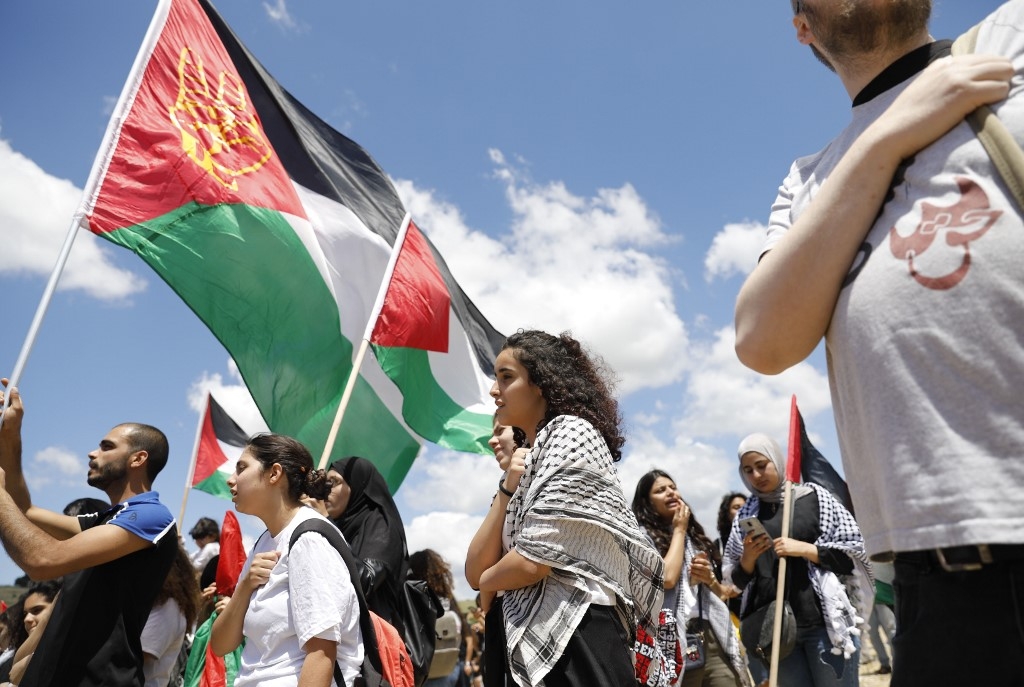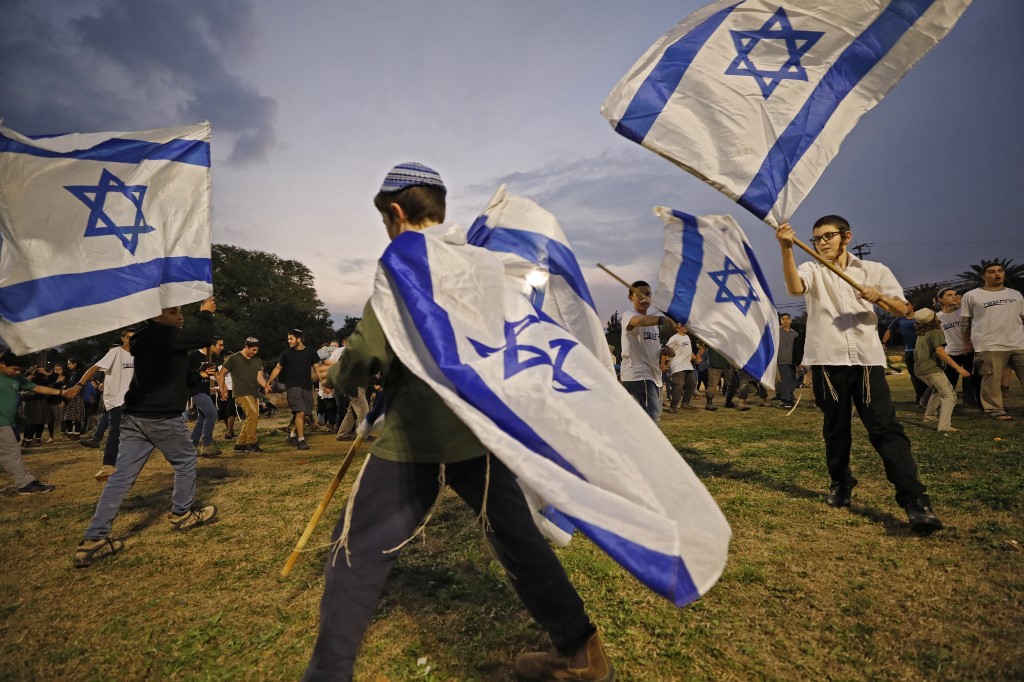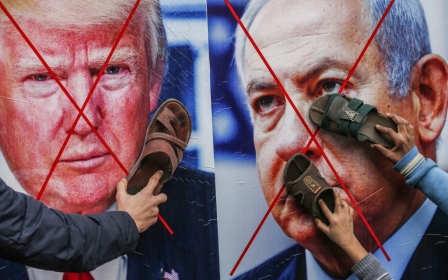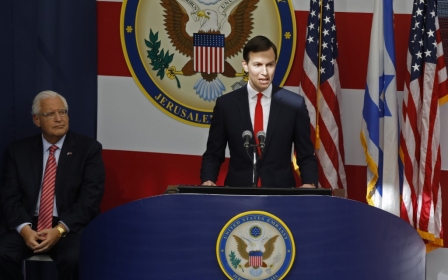By tearing us apart, Trump's deal can actually unite Palestinians

The most crucial characteristic of the US-Israeli "deal of the century" is that it is comprehensive, setting out a strategy to determine every aspect of the future destiny of the Palestinian people.
It omits the right of return for refugees, affirms the annexation of Jerusalem, and enables Israel to take over additional swathes of the West Bank, further fracturing the Palestinian territory, which would be connected to Gaza by a tunnel.
Paradoxically, while this deal may be a recipe for tearing the Palestinian people apart, it also unites them in a shared position of having to face this wretched destiny. Palestinians must face this as a single and unified people, no matter how different their circumstances might be. The more Palestine is ripped apart, the stronger the need to unite.
Colonial and racist project
Recognising Israel as a Jewish state is intended to block the path towards any alternative, including “a state for all its citizens”, as per the project of the Balad party. The “deal of the century” is entirely based on the principles of Israel’s new nation-state law, which stresses that the right to self-determination in the country is only for the Jewish people, confirming the colonial and racist nature of the Zionist project.
New MEE newsletter: Jerusalem Dispatch
Sign up to get the latest insights and analysis on Israel-Palestine, alongside Turkey Unpacked and other MEE newsletters
The 'deal of the century' proposes transferring the Triangle residents from a position of second-class citizenship to a second-class 'state'
When recognition of Israel as a Jewish state is presented within the framework of a political settlement, this grants international legitimacy to racial discrimination against the Arab citizens of Israel, with negative consequences on land, housing, citizenship, education, culture, employment, development, economy, and political and social rights. The US-Israeli plan aims to wipe the historical memory of the Palestinian people.
By omitting the right of return, the US-Israeli deal affects the rights of millions of refugees, including hundreds of thousands of Palestinians who live in Israel and carry Israeli citizenship. They live today in Arab residential communities throughout the country, calling to return to the towns from which they were displaced seven decades ago.
Israel strongly rejects this notion, even though their return would not affect the country’s demographic balance. This indicates that Israel is driven not only by demographics, but also by geography, in its quest for an exclusively Jewish state.
Ethnic cleansing
The “deal of the century” promotes ethnic cleansing under the banner of land exchange. Population transfers would expand the presence of settlers and remove Arab citizens from Israel, to wit: “Land swaps provided by the State of Israel could include both populated and unpopulated areas … The Vision contemplates the possibility, subject to agreement of the parties, that the borders of Israel will be redrawn such that the [Palestinian] Triangle Communities become part of the State of Palestine.”
It came to my knowledge that it was Netanyahu himself who inserted these clauses, via US Ambassador David Friedman.
Through such “transfers”, Israel aims to achieve a double victory: to gain legitimacy for its settler population in the occupied West Bank, and to rid itself of a large Arab bloc within Israel. The renewed process of ethnic cleansing would bolster Israel’s Jewish majority and weaken the Palestinian Arab community at the same time.
But implementing this plan would require agreement between the two sides, and the Palestinian leadership rejects it categorically, as do the people of the Triangle region and Palestinian political forces within Israel. There are immediate and imminent dangers, first and foremost by placing a question mark on the citizenship of around 300,000 Palestinians living in the Triangle region.
Merely the idea of a transfer could produce Israeli policies and practices far worse than the current situation. The Triangle region would be seen as an area at risk of removal, with accompanying risks to development, employment and investment. The “deal of the century” proposes transferring the Triangle residents from a position of second-class citizenship to a second-class “state”.
International complicity
The “deal of the century” deals with people as chess pieces, whereby Israel can impose or revoke citizenship as it pleases, severing intertwined links among Palestinians inside Israel. It is natural for members of any society to oppose attempts to weaken them.
In November 2017, I was part of a Joint List delegation to visit the European Union. We met with officials of member states and urged them to oppose the recognition of Israel as a Jewish state, and to challenge projects aimed at withdrawing citizenship from residents of the Triangle region.
We were told that Europe would stand in opposition, even though they had not yet been presented with concrete proposals. Now, the Trump plan, which contains these proposals and more, has been declared, and every detail contradicts international law and UN resolutions. Any silence from the international community should be considered as an act of complicity in the deprivation of Palestinian rights.
The most important action now, for those who want justice and peace, is to stand against the “deal of the century”, which is based on the violation of human rights and designed to prevent peace. It is painful and unfortunate that we must remind the world that Palestinians have human rights, like the rest of humanity. The specific issue of Palestinian citizens of Israel is a critical one.
Fighting for our rights
This move to target Palestinians citizens of Israel within the framework of a general political plan highlights the need for Palestinians, as a unified group, to confront this deal and to fight for our historical rights in a comprehensive manner.
Our primary goal should be to achieve unity in the struggle for the Palestinian people wherever they exist
Our primary goal should be to achieve unity in the struggle for the Palestinian people wherever they exist: in the homeland, in the diaspora, in Jerusalem and the West Bank, in Gaza and the Galilee, in the Triangle, in the Negev, and everywhere else.
The “deal of the century” targets the entire Palestinian population, and this must be a catalyst for a comprehensive and united movement to determine a fair destiny and future for the Palestinian cause.
Palestinians within Israel are an important part of this movement, by virtue of what they face generally and in this deal specifically, and by virtue of their experience in challenging the Israeli apartheid regime.
The views expressed in this article belong to the author and do not necessarily reflect the editorial policy of Middle East Eye.
Middle East Eye delivers independent and unrivalled coverage and analysis of the Middle East, North Africa and beyond. To learn more about republishing this content and the associated fees, please fill out this form. More about MEE can be found here.







